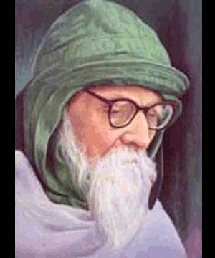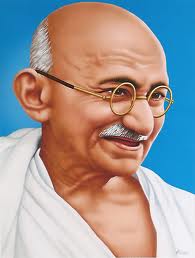E - Klasse 10 - Arbeit Nr. 6 - GreenButterSolutions
Hauptmenü:
- I N D E X
-
ENGLISCH
-
ARBEITEN
- Klasse 5
- Klasse 6
- Klasse 7
- Klasse 8
- Klasse 9
- Klasse 10
- Stufe 11
- Stufe 12
- Stufe 13
- Abitur
-
ÜBUNGEN
- Klasse 5
- Klasse 6
- Klasse 7
- Klasse 8
- Klasse 9
- Klasse 10
- Stufe 11
- Stufe 12
-
Stufe 13
- Inhalt
- E -Stufe 13 - Übung Nr. 1
- E -Stufe 13 - Übung Nr. 2
- E -Stufe 13 - Übung Nr. 3
- E -Stufe 13 - Übung Nr. 4
- E -Stufe 13 - Übung Nr. 5
- environment
- E -Stufe 13 - Übung Nr. 6
- stylistic devices
- E -Stufe 13 - Übung Nr. 7
- education
- E -Stufe 13 - Übung Nr. 8
- E -Stufe 13 - Übung Nr. 9
- E -Stufe 13 - Übung Nr. 10
- society
-
Abitur
- Inhalt
- E - Abitur - Übung Nr. 1
- E - Abitur - Übung Nr. 2
- E - Abitur - Übung Nr. 3
- minorities
- E - Abitur - Übung Nr. 4
- medicine
- E - Abitur - Übung Nr. 5
- arts
- E - Abitur - Übung Nr. 6
- sports
- E - Abitur - Übung Nr. 7
- religion
- E - Abitur - Übung Nr. 8
- economy
- E - Abitur - Übung Nr. 9
- E - Abitur - Übung Nr. 10
- GRAMMATIK
- JOKES
-
ARBEITEN
-
FRANZÖSISCH
-
ARBEITEN
- Klasse 5
- Klasse 6
- Klasse 7
- Klasse 8
- Klasse 9
- Klasse 10
- Stufe 11
- Stufe 12
- Stufe 13
- Abitur
-
ÜBUNGEN
- Klasse 5
- Klasse 6
- Klasse 7
- Klasse 8
- Klasse 9
- Klasse 10
- Stufe 11
-
Stufe 12
- Inhalt
- F -Stufe 12 - Übung Nr. 1
- F -Stufe 12 - Übung Nr. 2
- F -Stufe 12 - Übung Nr. 3
- F -Stufe 12 - Übung Nr. 4
- les procédés de style
- F -Stufe 12 - Übung Nr. 5
- le football
- F -Stufe 12 - Übung Nr. 6
- l'histoire
- F -Stufe 12 - Übung Nr. 7
- l'éducation civique
- F -Stufe 12 - Übung Nr. 8
- la santé publique
- F -Stufe 12 - Übung Nr. 9
- la voiture
- F -Stufe 12 - Übung Nr. 10
- la famille
-
Stufe 13
- Inhalt
- F -Stufe 13 - Übung Nr. 1
- les médias
- F -Stufe 13 - Übung Nr. 2
- l'alimentation
- F -Stufe 13 - Übung Nr. 3
- les faux amis
- F -Stufe 13 - Übung Nr. 4
- l'école
- F -Stufe 13 - Übung Nr. 5
- le voyage
- F -Stufe 13 - Übung Nr. 6
- les animaux
- F -Stufe 13 - Übung Nr. 7
- l'environnement
- F -Stufe 13 - Übung Nr. 8
- la grammaire
- F -Stufe 13 - Übung Nr. 9
- le corps
- F -Stufe 13 - Übung Nr. 10
- la science et la technologie
-
Abitur
- Inhalt
- F -Abitur - Übung Nr. 1
- l'économie
- Deforges
- F -Abitur - Übung Nr. 2
- les professions
- F -Abitur - Übung Nr. 3
- la ville
- Daudet
- F -Abitur - Übung Nr. 4
- la religion
- F -Abitur - Übung Nr. 5
- les sports
- F -Abitur - Übung Nr. 6
- F -Abitur - Übung Nr. 7
- l'Internet
- F -Abitur - Übung Nr. 8
- F -Abitur - Übung Nr. 9
- F -Abitur - Übung Nr. 10
- GRAMMATIK
- HUMOUR
-
ARBEITEN
- SERVICE
E - Klasse 10 - Arbeit Nr. 6


Vinoba Bhave (1895 -
Mohandas Karamchand Gandhi (1869 -
1. Reading comprehension. Answer the following questions in complete sentences. Do not copy the text.
Land for the landless: Vinoba Bhave
The successful part which non-
feature of India's history in this century. By relying on nonviolence Mahatma Ghandi demonstrated that the ethics of love
and brotherhood could be a political as well as a social advantage.
Two of his most famous disciples were Jawaharlal Nehru and Vinoba Bhave. Whereas Nehru devoted himself to politics,
Bhave concentrated entirely on putting Ghandi's ideas into practice to obtain a better social structure.
Vinoba Bhave was born in 1895 and studied at Baroda College. During his student days he became acquainted with
Mahatma Ghandi's teachings, and was so influenced by them that he left college and joined Ghandi's movement of civil
disobedience against the British. He was imprisoned a number of times, which did not discourage him, however, from
believing in the ideals and principles of Mahatma Ghandi. The movement of non-
India achieved independence in 1947.
The greatest change in Bhave's life came after the assassination of Mahatma Ghandi in 1948. He now gave himself up
entirely to reforming the rural communities. India is mainly an agricultural country and, if things were to change, then the
work had to begin at the lowest level, i.e. in the rural areas.
There was great disparity between rich landowners and poor farmers; and there were many who had no land of their own
at all. Would it be possible to bring some new kind of social order to the village community? If so, could it be done
peacefully? Could people be persuaded to give the surplus land they had to the landless? These were some of Bhave's
thoughts when he started his famous Bhoodan (gift of land) movement in 1951. His aim was to get fifty million acres of land
and have it distributed among the poor. He believed that "in a just order of society land must belong to all".
Bhave's method was a simple one. He would walk from village to village, accompanied by his followers, and talk directly
to the rich landowners. He would appeal to their consciences and say, "If you have five sons, you would distribute your land
among them. Take me as your sixth son and give me one sixth of your land."
It was indeed amazing how the Bhoodan movement persuaded the landowners to give.
Bhoodan was later extended to Gramdan (gift of entire villages). By 1967 about four and a half million acres of land had
been given, and the number of Gramdan villages was 40,000.
Vinoba Bhave is regarded as having started a new chapter in the social and economic development of India.
(source unknown)
1.1. What is most likely to be the outstanding feature of India's twentieth century history?
1.2. Which fact makes Bhave different from Nehru?
1.3. In the text is spoken about the life of Vinoba Bhave. What kind of text is it? Give a definition of the technical term.
1.4. Why had the changes after Ghandi's death to begin at lowest level?
1.5. Sum up Bhave's thoughts as to the land reform.
1.6. Was Bhave successful in starting a new chapter in the social and economic development of India? Say why or why not.
2. The passive voice. Form sentences in the passive voice.
2.1. The sailors told the children wonderful stories.
2.1.1.
2.1.2.
2.2. The ladies are cleaning this room.
2.3. James Watt had invented the first steam engine long before that event.
3. Defining nouns. Write what the following people do as for a living. Complete sentences only!
3.1. electrician:
3.2. teacher:
3.3. actress:
3.4. waitress:
3.5. journalist:
